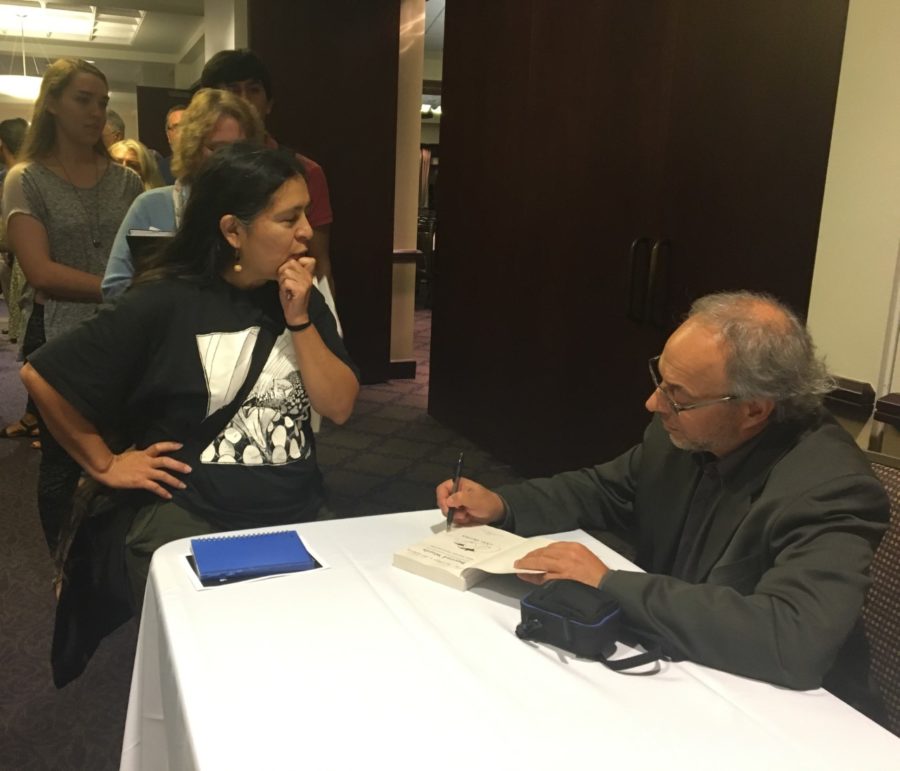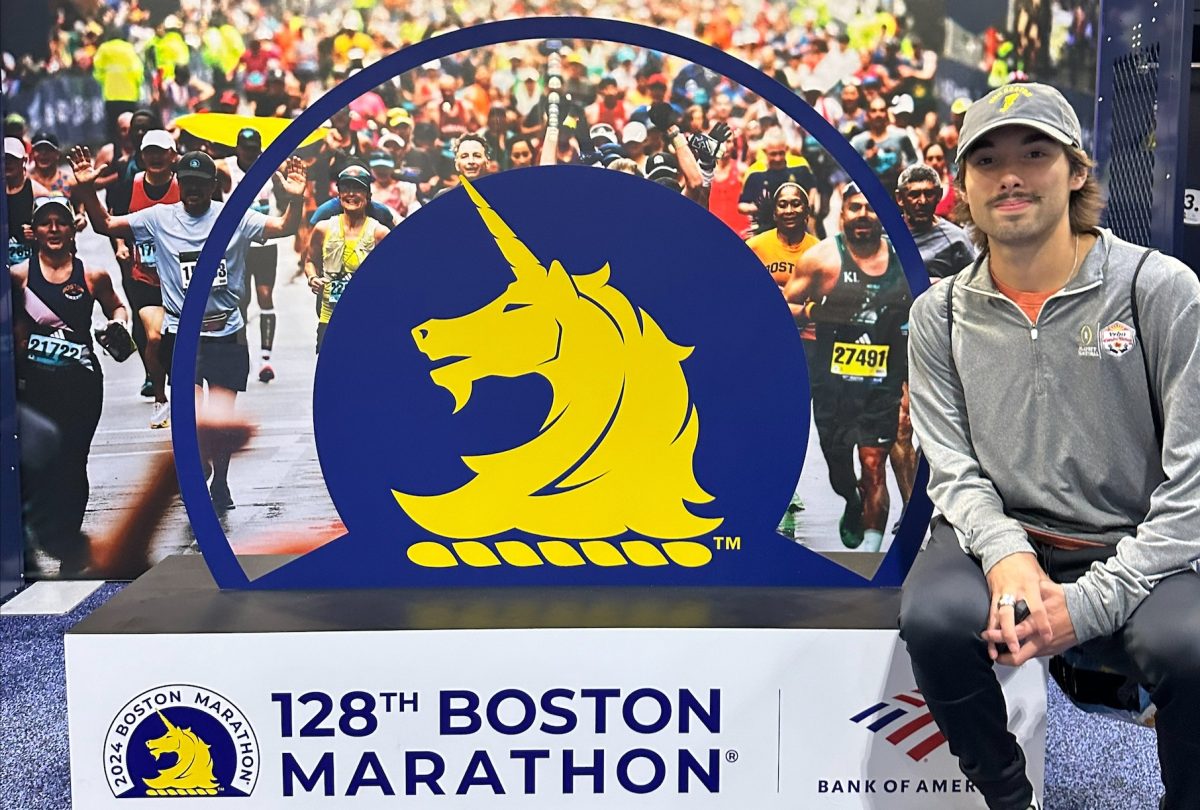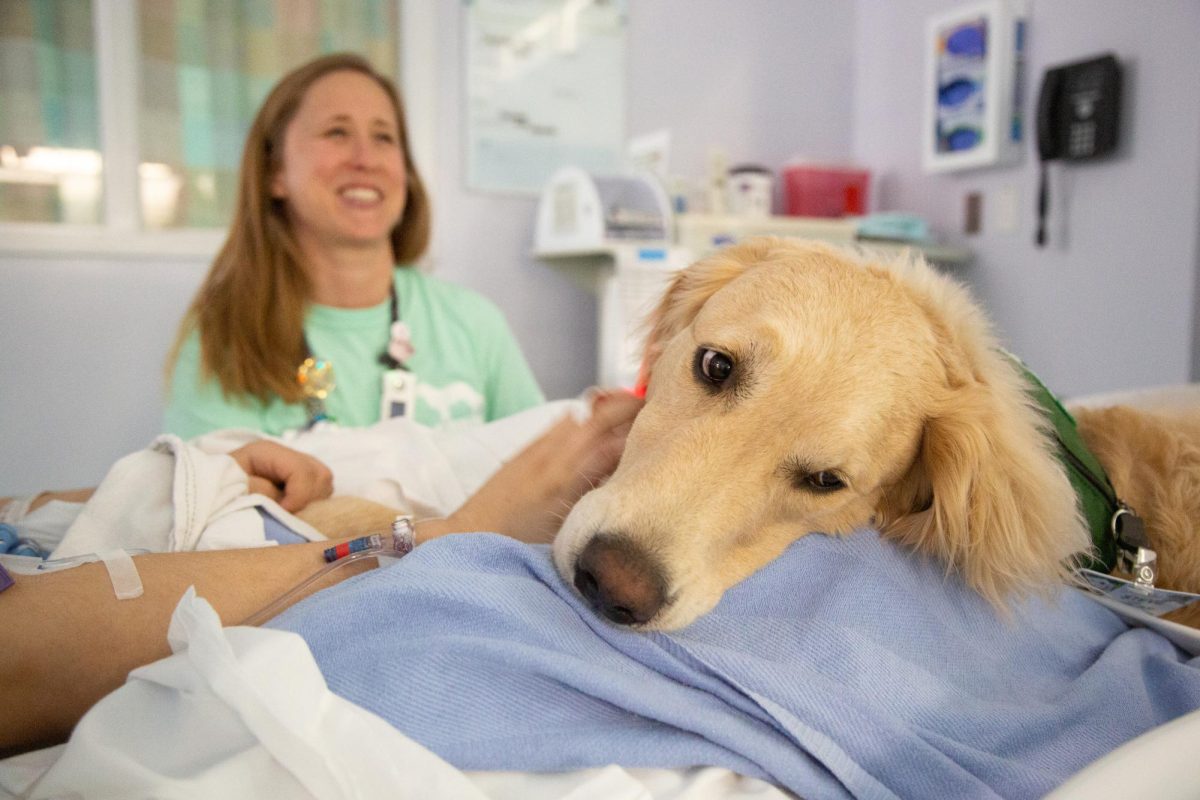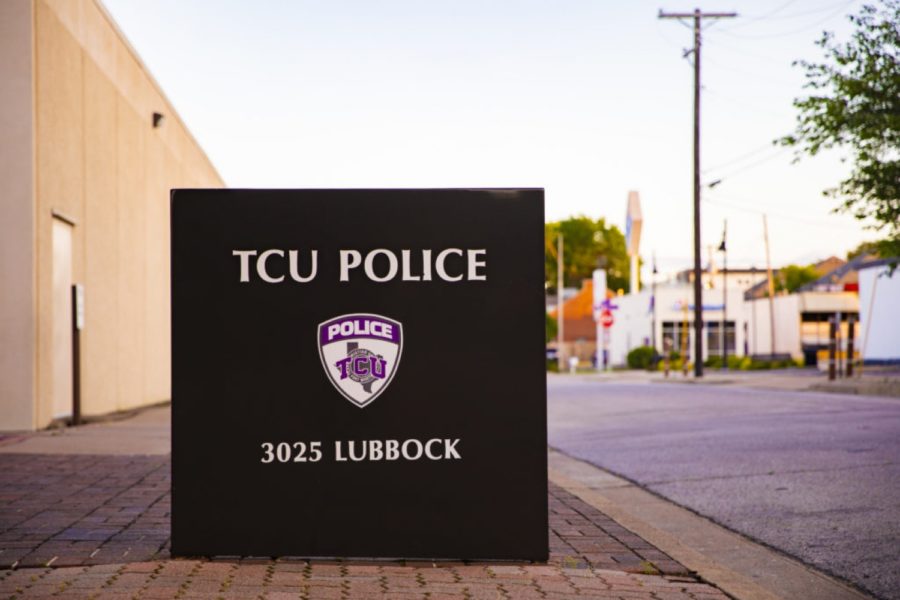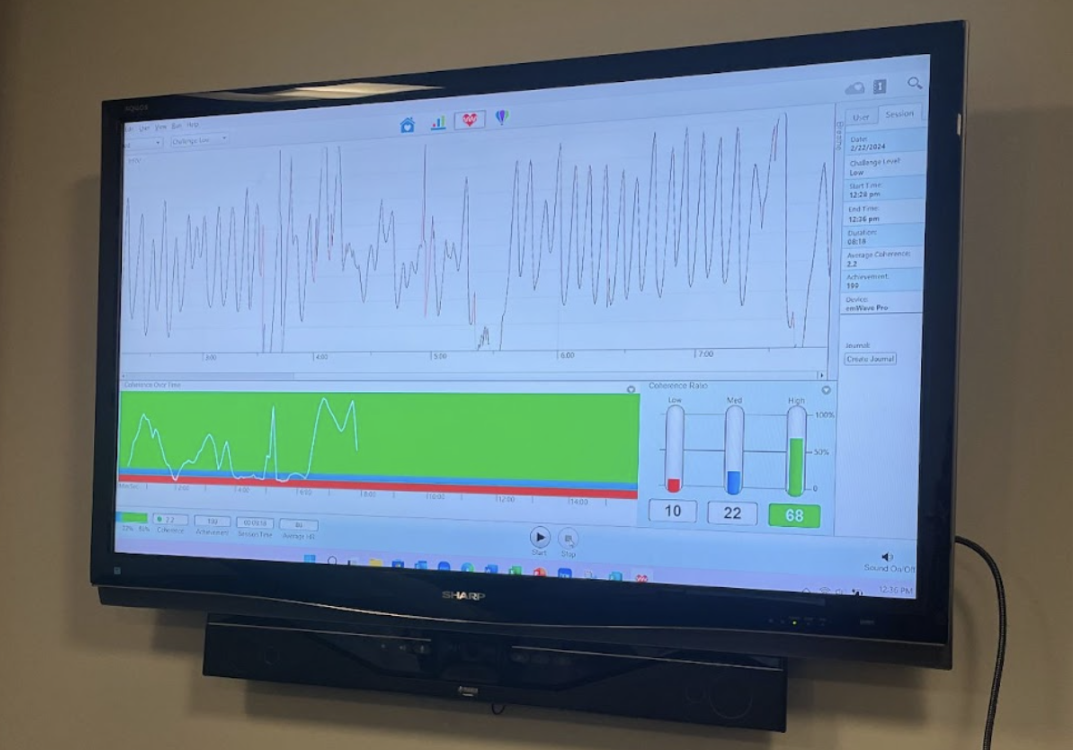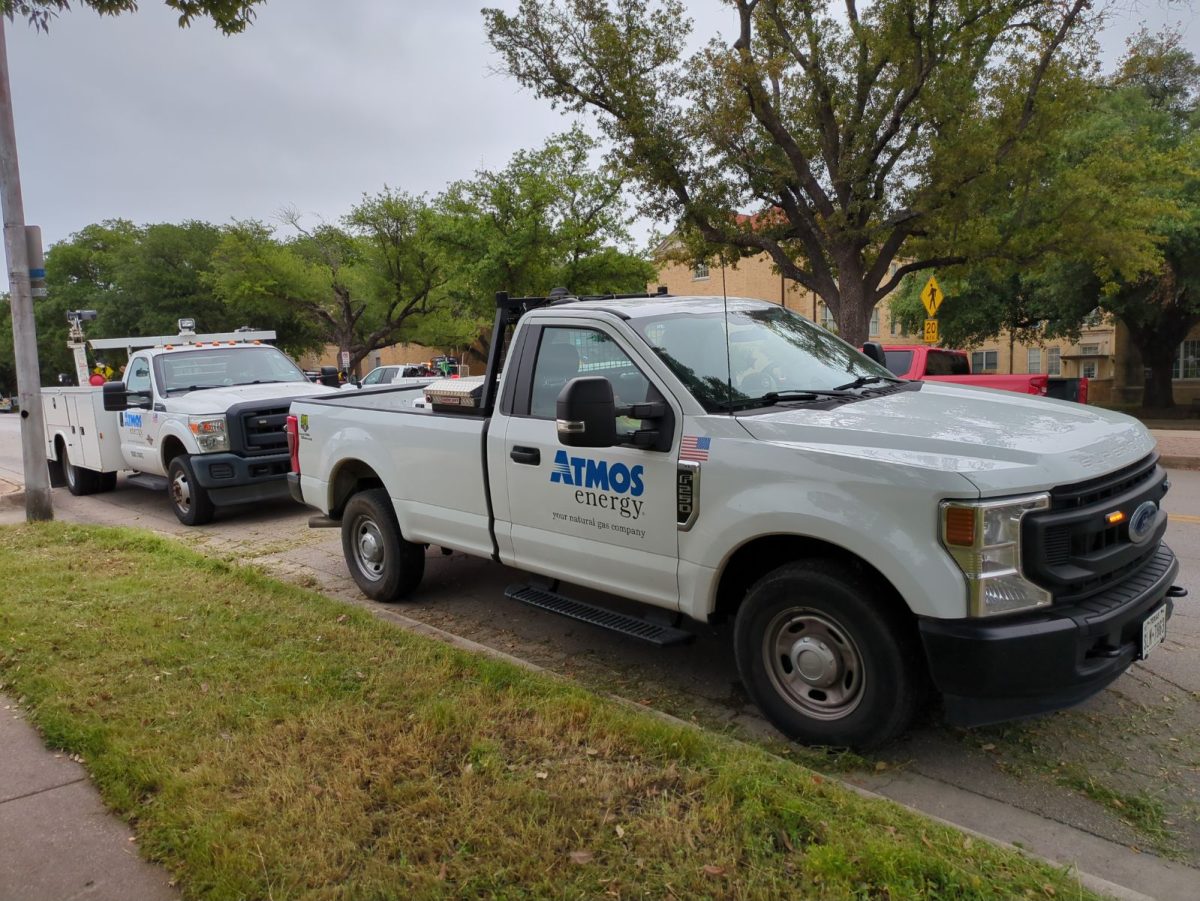All eyes were on Carl Safina as he began to address the mystery of animals and their relation to humans.
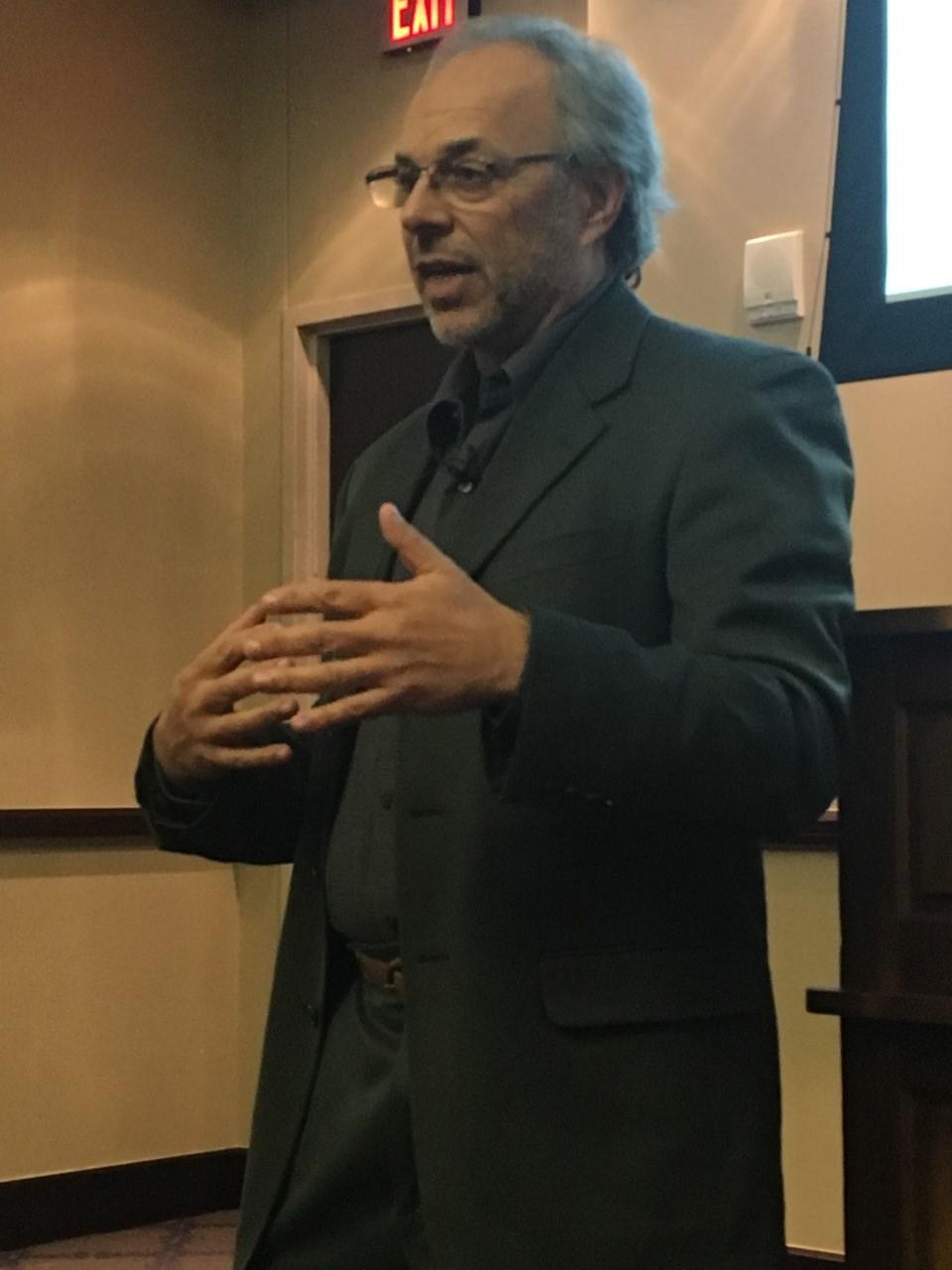
Safina, author of Beyond Words: What Animals Think and Feel, spoke to an estimated 200 students, faculty and community members at the Dee J. Kelly Alumni and Visitors Center on Nov. 3.
Safina was the first keynote speaker for the Ronald E. Moore Humanities Symposium, speaking about “What Makes us Human.”
Safina said one of the central facets that make us human is our animal nature.
“We are the most creative, most compassionate, most destructive, cruelest animals that have ever lived,” Safina said. “We are the animal of the extreme.”
Safina argues that despite what some may think, animals are conscious.
“To say that animals that have noses to smell with, eyes to see with and ears to hear with who play with one another, might not even be conscious is so bizarre, it’s psychotic,” Safina said.
Shelby Wildish, a junior biology major, said Safina helped her look at animals in a different perspective.
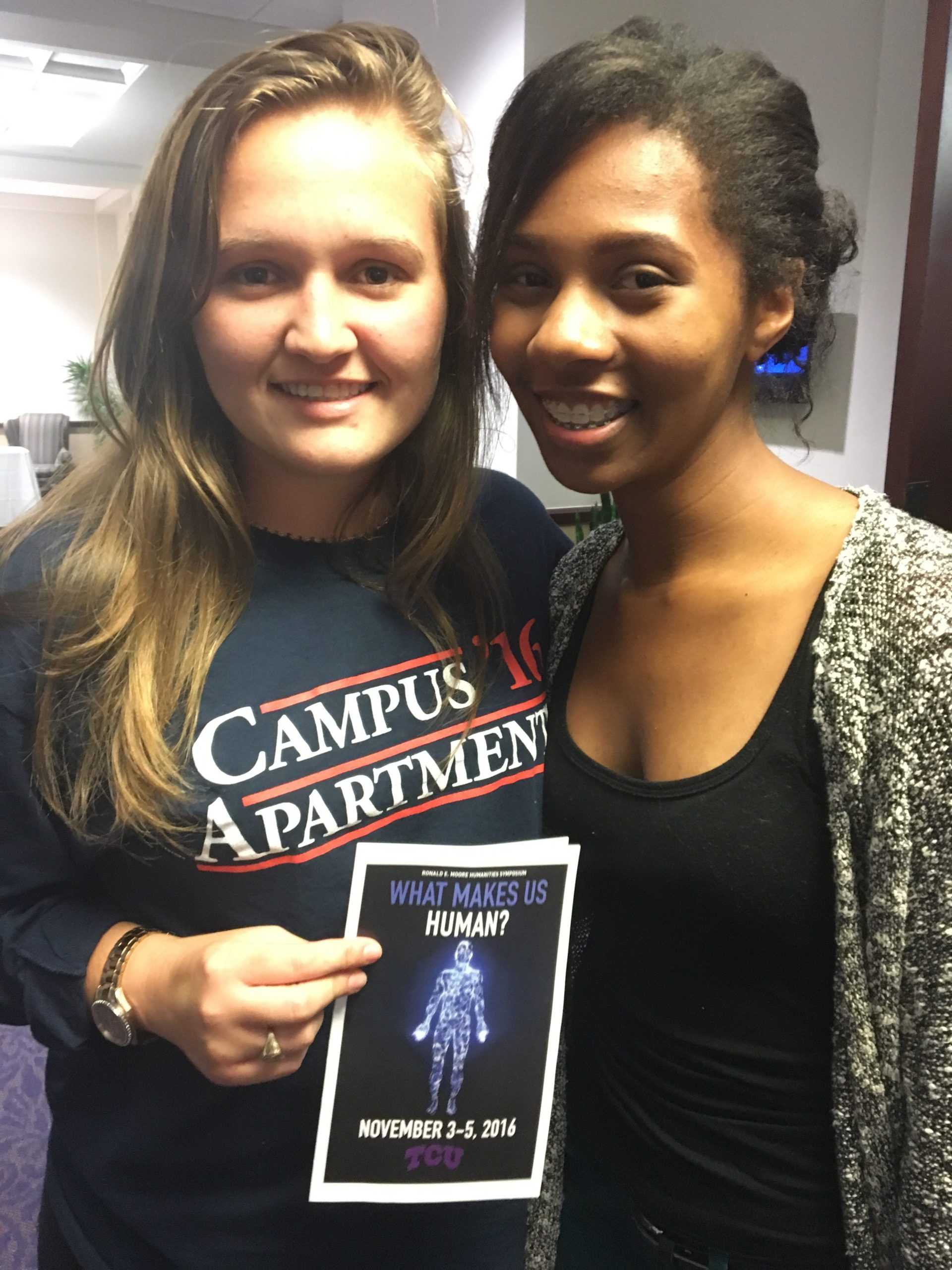
“He’s arguing these animals perceive feeling, perceive emotion, perceive consciousness, and it’s a nice perspective to be put into the light of today when individuals see themselves as superior in regards to everything,” Wildish said.
Mike Scott, a first-year accounting major, agreed that Safina gave him a new way to view animals’ relationships with humans.
“He grabbed me from the first moments he spoke,” Scott said. “He kept it interesting, he made it intriguing and then he actually made me realize that it’s more than just an animal or another creature.”
Tasha Weathersbee, first-year music education major, said the event was a wake-up call.
“We’re so involved in our life and what we can learn about the world that we forget the world is just what it is,” Weathersbee said.
To learn more about Safina’s research on what animals are thinking and feeling, watch his TED talk.



